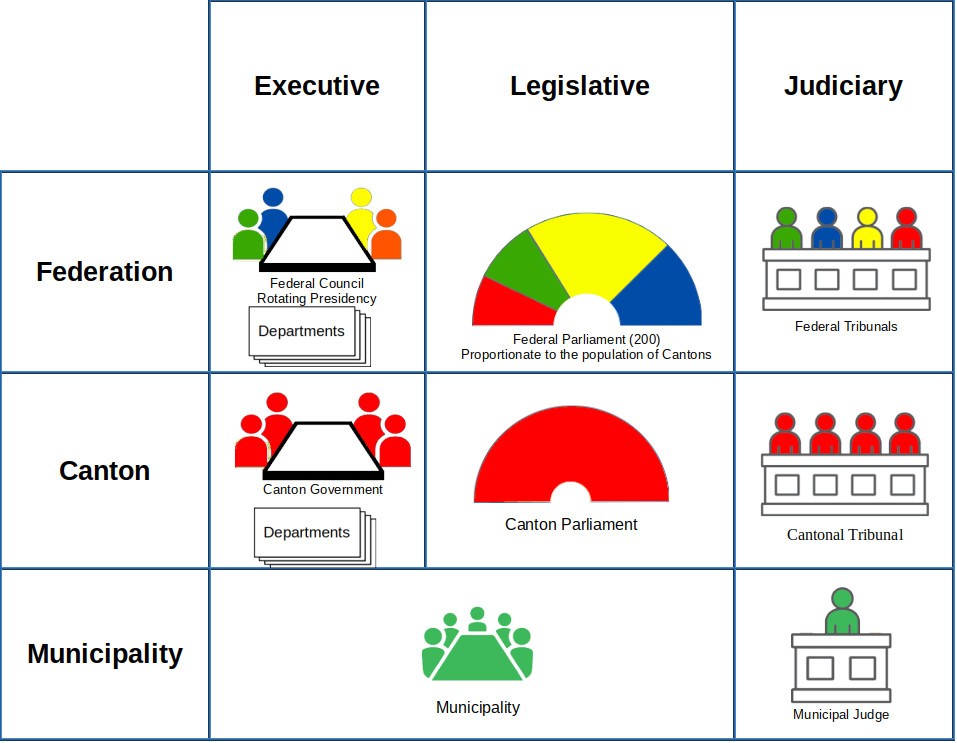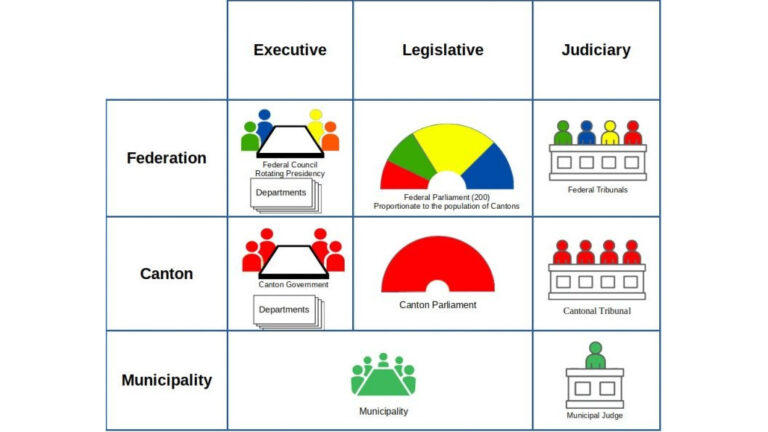
3 Levels of Governance
Municipal, cantonal, Federal
Executive, Legislative, Judiciary
- Principle of National Narratives, asserts that Lebanon is composed of multiple “Romans Nationaux” or “National Narratives”. This cultural diversity is the building block of Lebanon’s social reality.
- Principle of Self-government, (cuius region eius religio – governed and governor have to be of the same faith) is the cornerstone for secularism, accountability and development. By enabling each narrative to freely choose its governance system, a uniform social structure is created.
- Principle of Subsidiarity, is the basis of governance and a bottom-up power devolution. The smallest political entity is the municipality. Each municipality will be asked to choose its governance model and its cantonal government.
- Principle of Solidarity, states that both development and wealth creation must be shared. The development of one municipality must spread constructively to its surroundings, as much as possible. That is also the case for municipalities
belonging to different cantons. - Principle of cantonal sovereignty, states that all legislative elections are strictly within each canton. Any federal decision that conflicts with a cantonal decision is not enforceable and the canton can decide not to accept it.
- Principle of Three-Level structure, declares that the governance structure consists of Municipal, cantonal and Federal levels. Municipalities are free to decide which level of governance intervention is required on a project by project basis. Hence, the level of scaling up is left to the discretion of the municipalities who can also pool together resources from other municipalities to reach their intended objective.
- Principle of Unanimity, affirms that the Federal Government is composed of one representative from each canton who holds veto rights. Consequently, all federal decisions require unanimity.
- Principles Elections and Votations (Checks and Balances), ensures that no elected representative has absolute control over decisions taken at any level. Accordingly, communities will periodically express their approvals or rejections over such decisions through referendums taken at the municipal, cantonal and federal level.
- Principle of Rotation, expresses the need for a duty rotation among the leadership positions of the federal government. Each canton appointed representative will have an equal opportunity to fill these positions.
- Principle of Implementation, indicates that the first municipal vote will determine to which canton each municipality belongs to. Initially, there will be four cantons representing our national narratives and a fifth for those that choose not to be affiliated with them. Since the Principle of Subsidiarity grants each citizen the right to self-determine, the number of cantons can change based on future electoral vote results.



